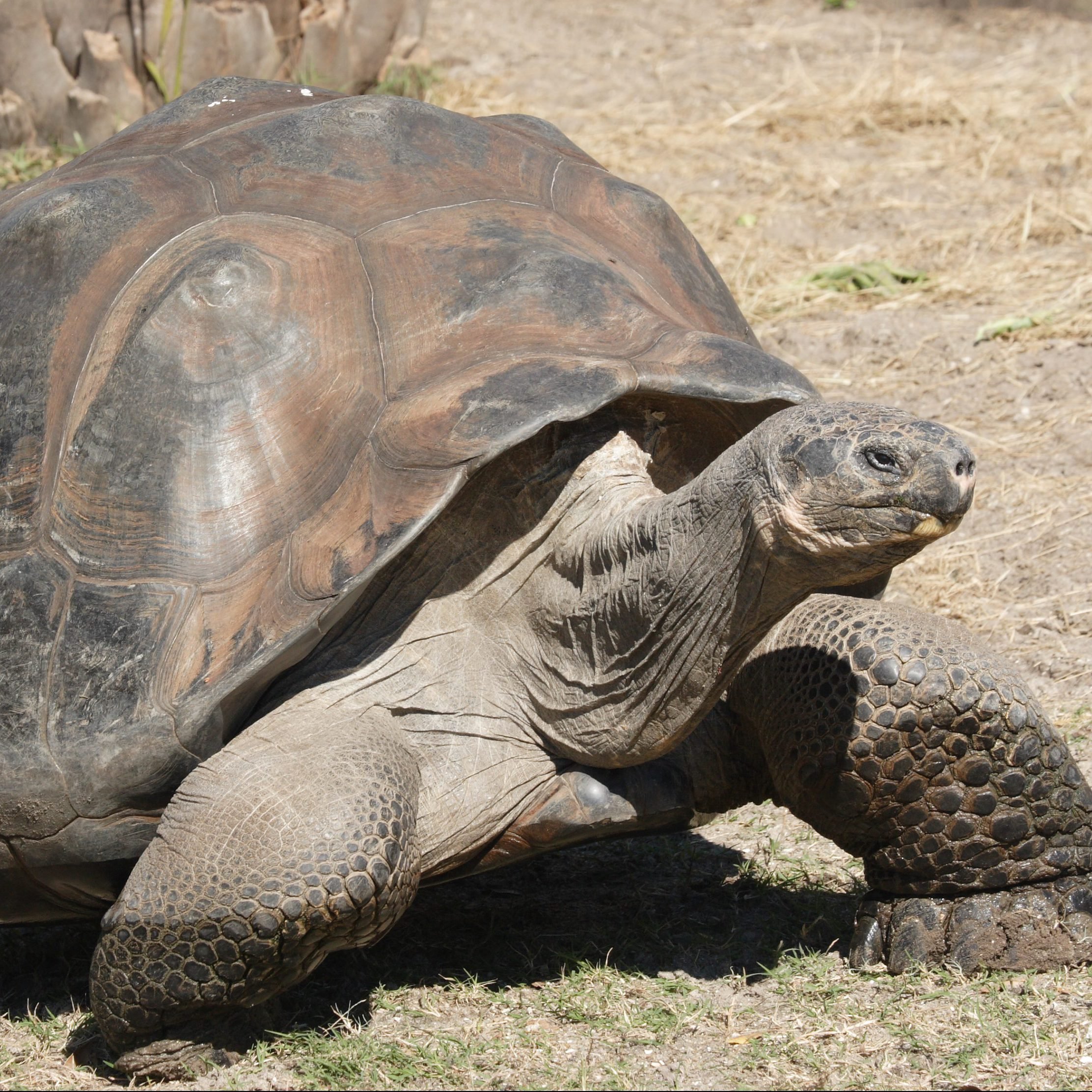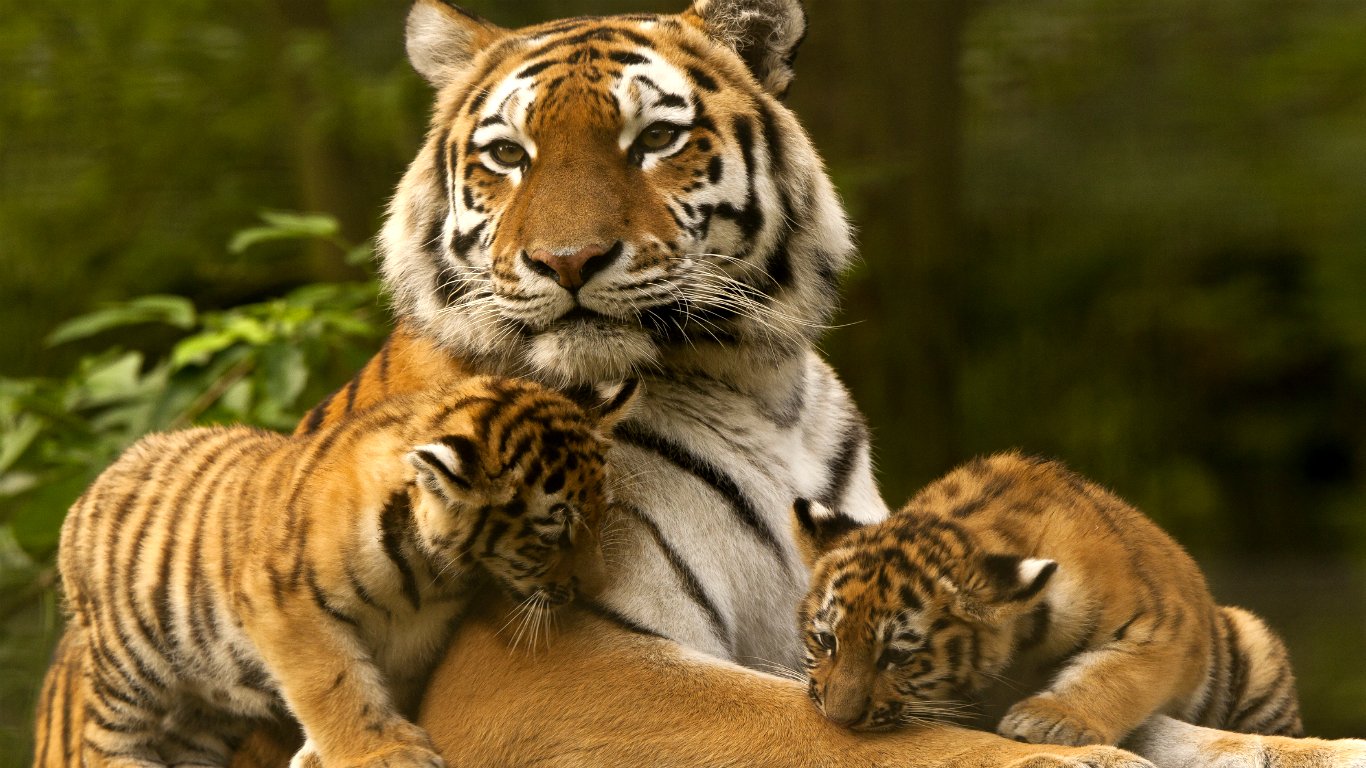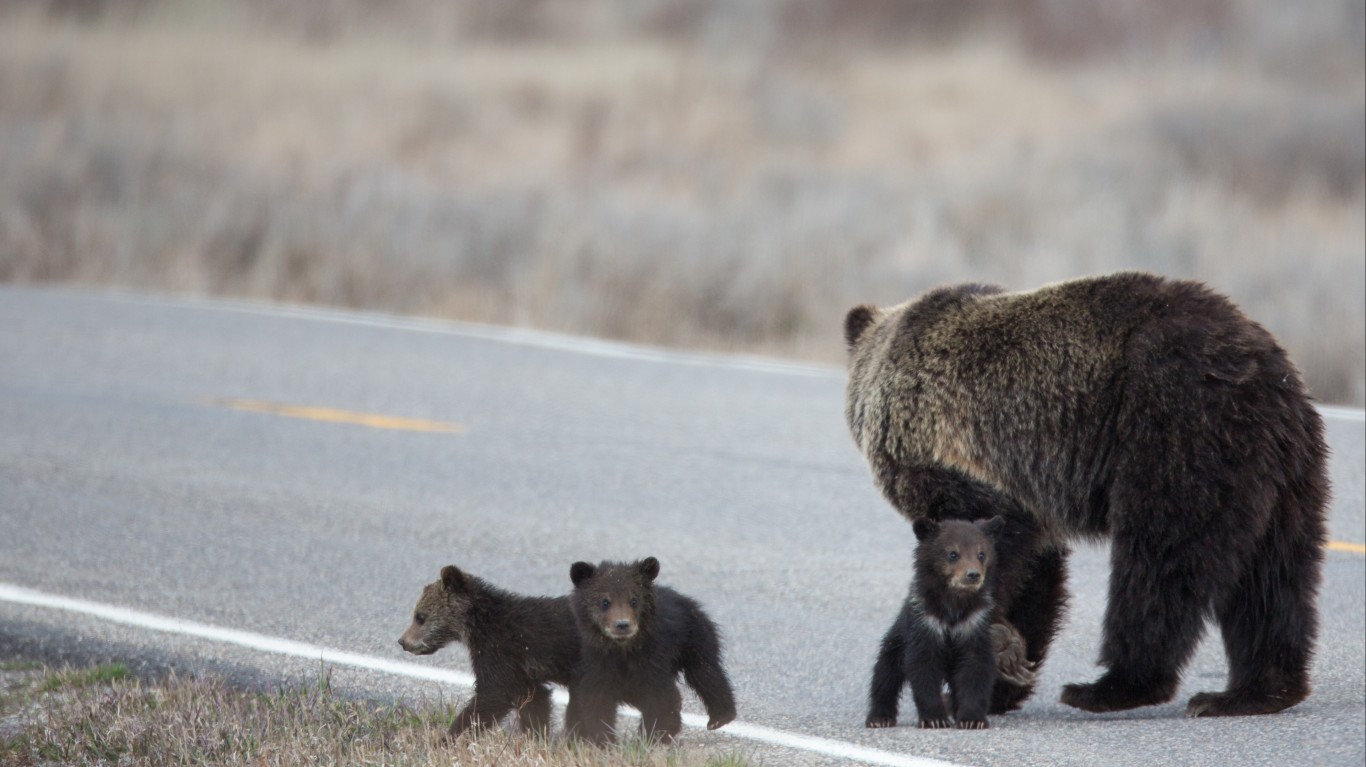

Despite the relentless urbanization of the U.S., you can still get killed by an animal in America – though the odds that that will happen are much higher in some states than others.
To determine the states where you’re most likely to be killed by an animal (or an insect or spider), 24/7 Tempo reviewed “What Are Your Chances of Being Attacked by Wildlife?,” a report published by BetOhio, an Ohio-specific sports betting site. The site tracked animal fatalities across the country between January 2000 and May 2022, sourcing information from “Numbers of human fatalities, injuries, and illnesses in the United States due to wildlife,” published in Human-Wildlife Interactions, a journal from Utah State University’s Berryman Institute, as well as from CDC Wonder, published by the Centers for Disease Control and Prevention, and Wikipedia. BetOhio drew population data from Infoplease. (We excluded fatalities from cars hitting deer, since the animals didn’t attack the humans.)
Not surprisingly, the number of people killed by wildlife is highest in the nation’s most populous states – with the exception of Tennessee, which is 16th largest in population but occupies fifth place on our list. There have been 559 deaths due to animal encounters in Texas, more than any other state. California has had 312 fatalities since 2000, and Florida has had 257 deaths. Tennessee had 165 fatalities, making the odds 1 in 42,435 based on the state’s population.
The chances of a fatal meeting with an animal or bug are even higher in West Virginia, Montana, Alaska, Mississippi, South Dakota, Arkansas, Oklahoma, and Idaho, though the total number of deaths is lower. (These are the most dangerous national parks in America.)
Click here to see the states where you’re most likely to be killed by an animal or a bug
If you prefer to live in safer parts of the U.S., your odds are much better in New England and North Dakota. Since 2000, there have been no reported fatalities in three states – New Hampshire, North Dakota, and Vermont – despite their large wildlife populations. Rhode Island has had one animal-related death since 2000, so the odds of being attacked over a 20-year period there are better than 1 in a million.
Bees, hornets, wasps claim the most human deaths in the U.S. – about 100 people annually, and more than a third of all animal-inflicted deaths over the past two decades – because of allergic reactions to their sting. Dogs were the next most dangerous, followed – unexpectedly – by cows, which can trample or kick people, deliberately or not. Spider bites are comparatively rare, as are attacks by bears, alligators, crocodiles, and sharks. Fears inspired by “Jaws” aside, only nine people worldwide died from shark bite in 2021. These, though, are the world’s deadliest animals.
These were followed by dogs (30) and cows (25), the latter of which frequently trample and kick people both accidentally and on purpose. Ironically, rounding out the bottom of the deadly animals list are snakes, spiders, bears, alligators, crocodiles and sharks

50. Vermont
> Fatal attacks (2000-2022): 0 (tie)
> Population (2020): 622,882
> Odds of being killed by an animal: 0
[in-text-ad]

49. North Dakota
> Fatal attacks (2000-2022): 0 (tie)
> Population (2020): 774,008
> Odds of being killed by an animal: 0
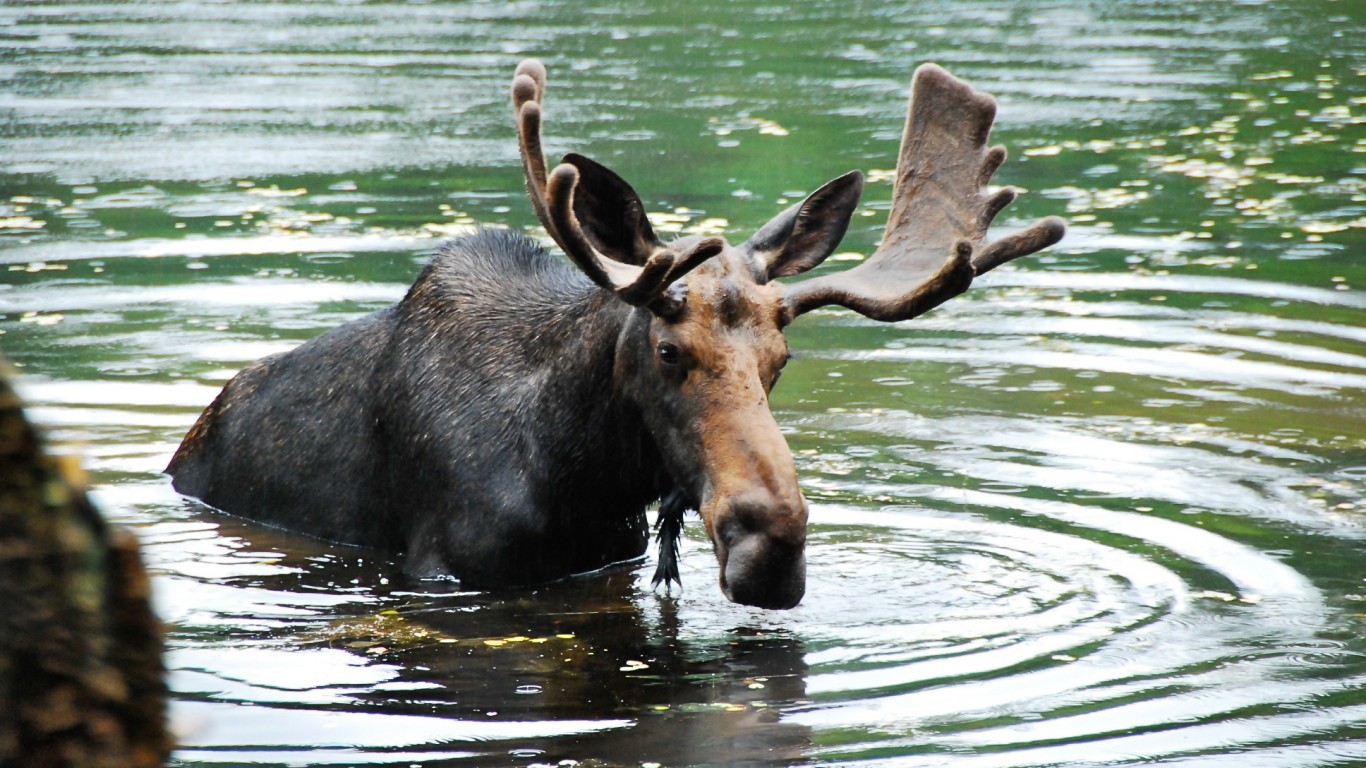
48. New Hampshire
> Fatal attacks (2000-2022): 0 (tie)
> Population (2020): 1,378,449
> Odds of being killed by an animal: 0
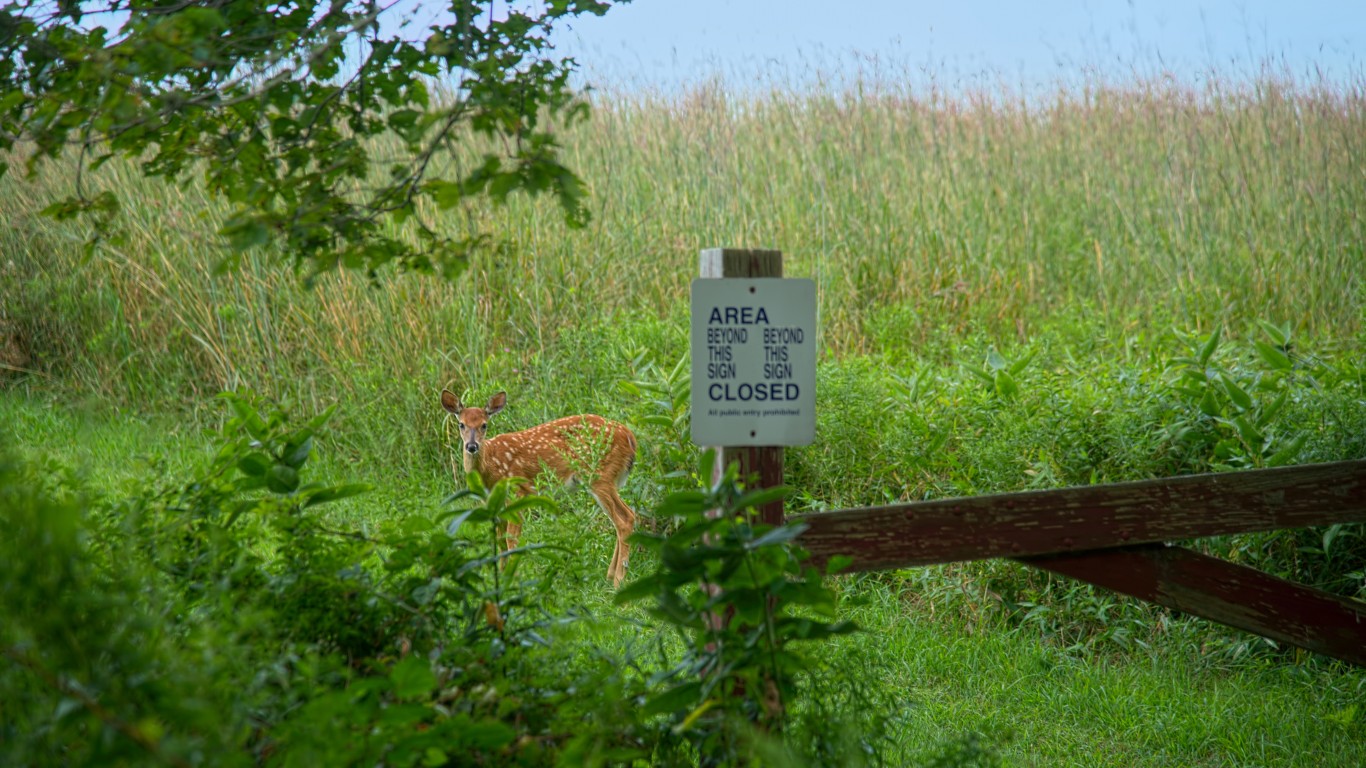
47. Rhode Island
> Fatal attacks (2000-2022): 1
> Population (2020): 1,062,583
> Odds of being killed by an animal: 1 in 1,062,583
[in-text-ad-2]

46. Delaware
> Fatal attacks (2000-2022): 2
> Population (2020): 998,619
> Odds of being killed by an animal: 1 in 499,310

45. Maine
> Fatal attacks (2000-2022): 3
> Population (2020): 1,359,677
> Odds of being killed by an animal: 1 in 453,226
[in-text-ad]

44. Hawaii
> Fatal attacks (2000-2022): 12
> Population (2020): 1,401,709
> Odds of being killed by an animal: 1 in 116,809
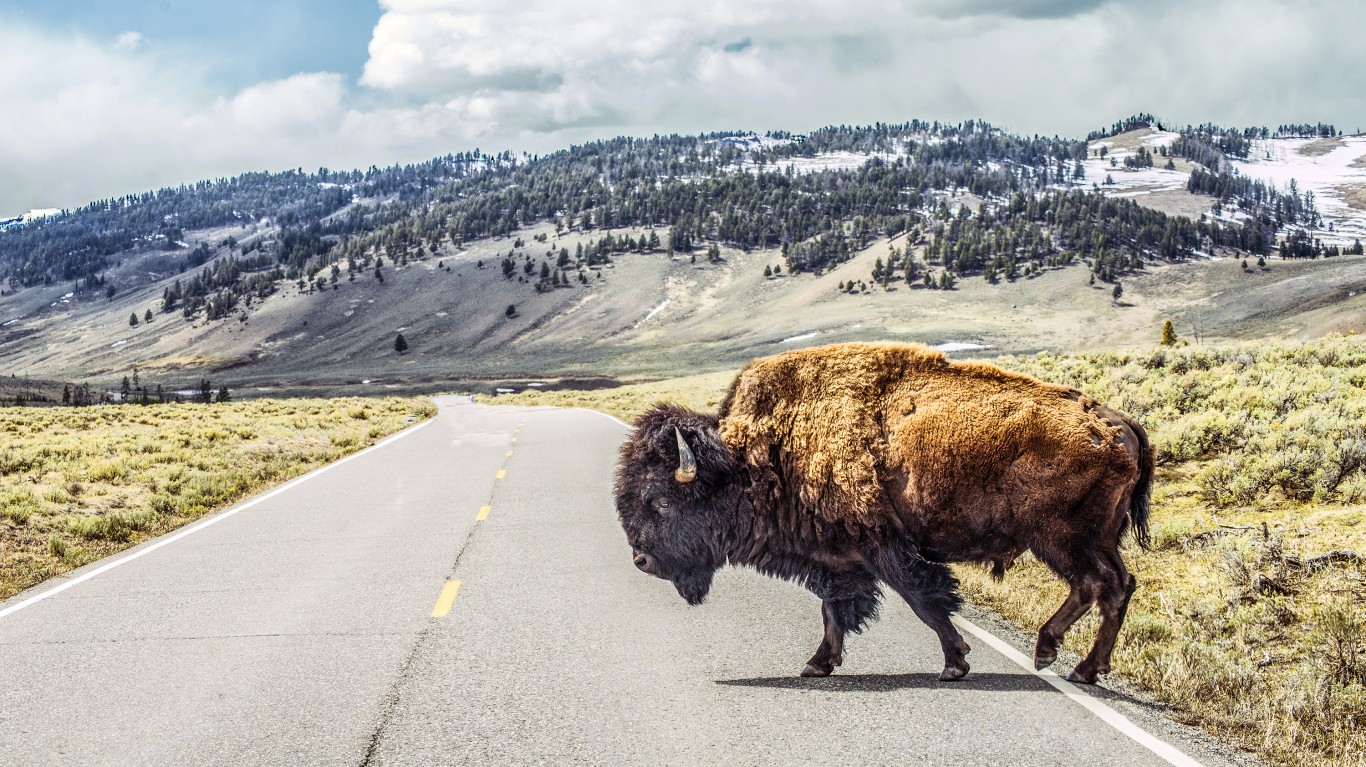
43. Wyoming
> Fatal attacks (2000-2022): 13
> Population (2020): 582,233
> Odds of being killed by an animal: 1 in 44,787
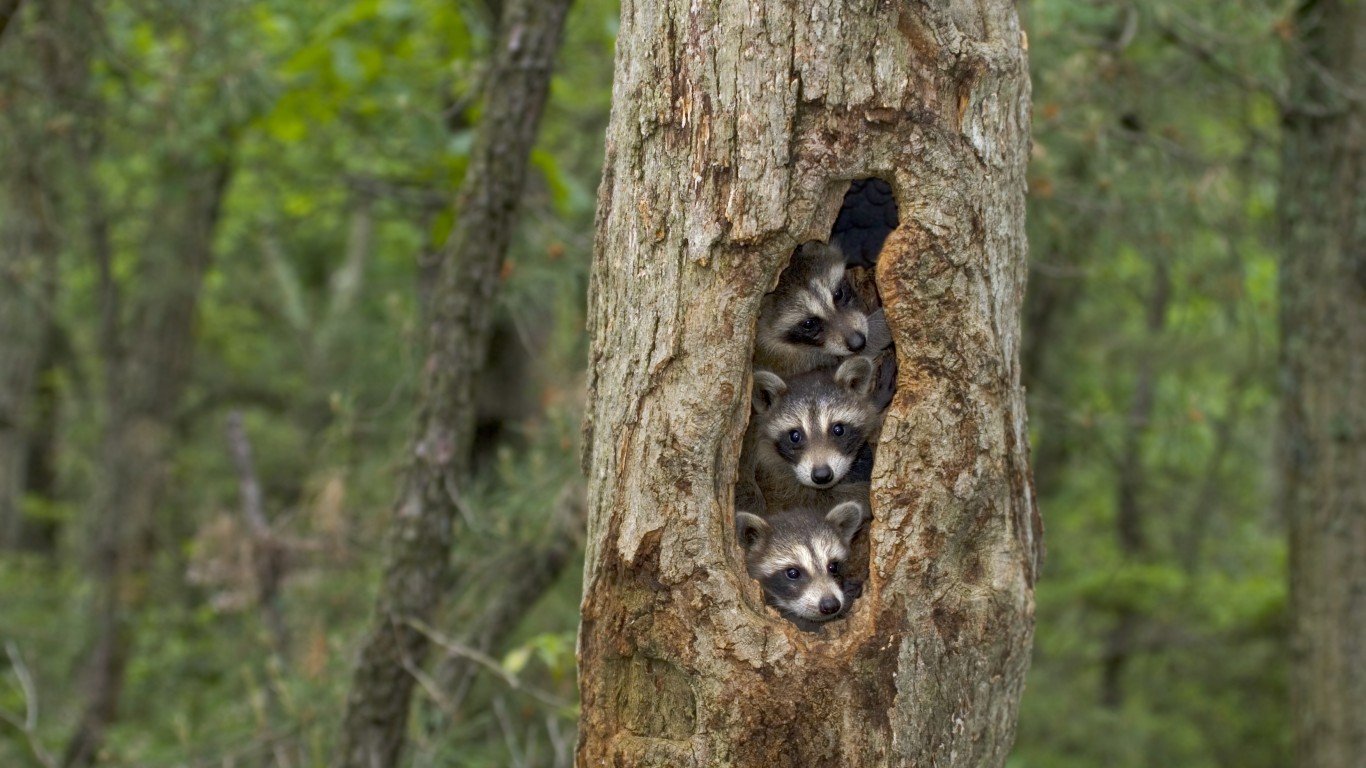
42. New Jersey
> Fatal attacks (2000-2022): 19
> Population (2020): 8,870,685
> Odds of being killed by an animal: 1 in 466,878
[in-text-ad-2]
41. Connecticut
> Fatal attacks (2000-2022): 20
> Population (2020): 3,546,588
> Odds of being killed by an animal: 1 in 177,329

40.Alaska
> Fatal attacks (2000-2022): 20
> Population (2020): 720,763
> Odds of being killed by an animal: 1 in 36,038
[in-text-ad]
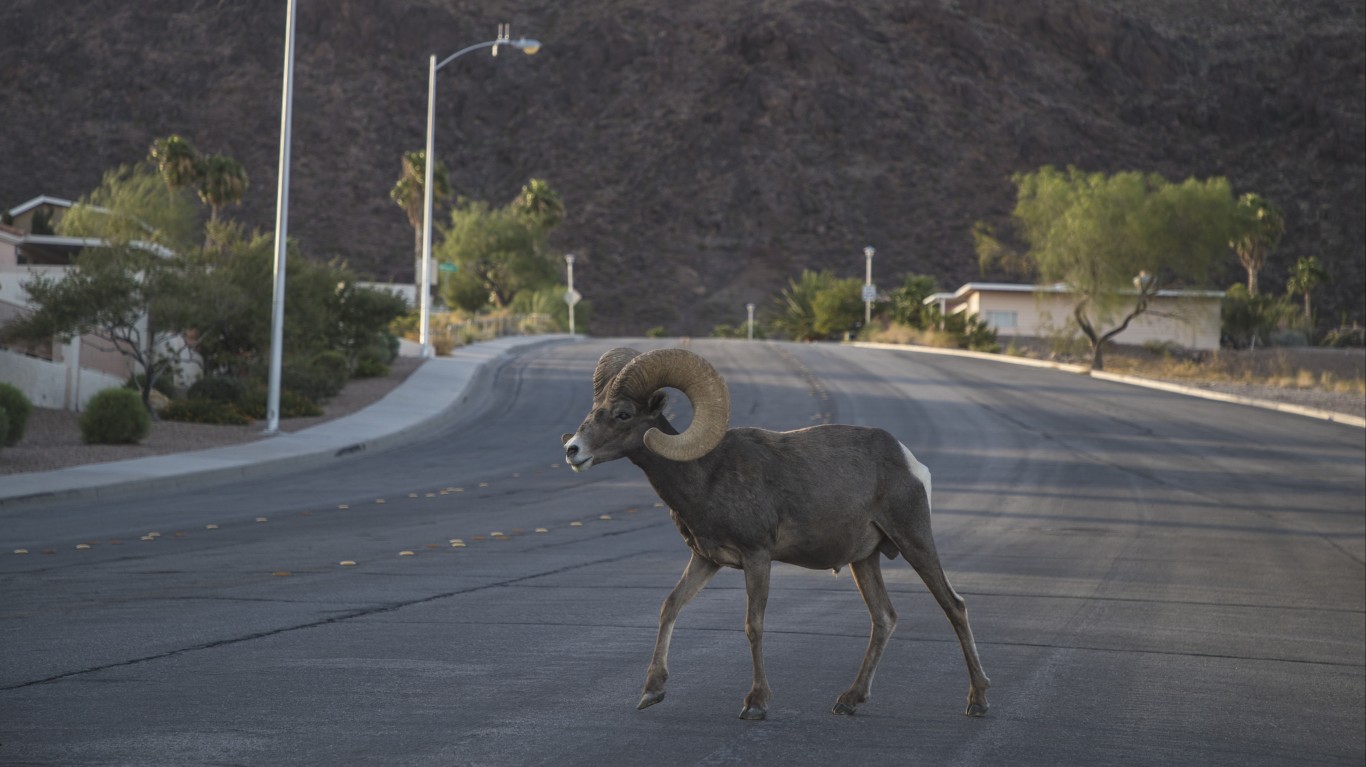
39. Nevada
> Fatal attacks (2000-2022): 21
> Population (2020): 3,238,601
> Odds of being killed by an animal: 1 in 154,219
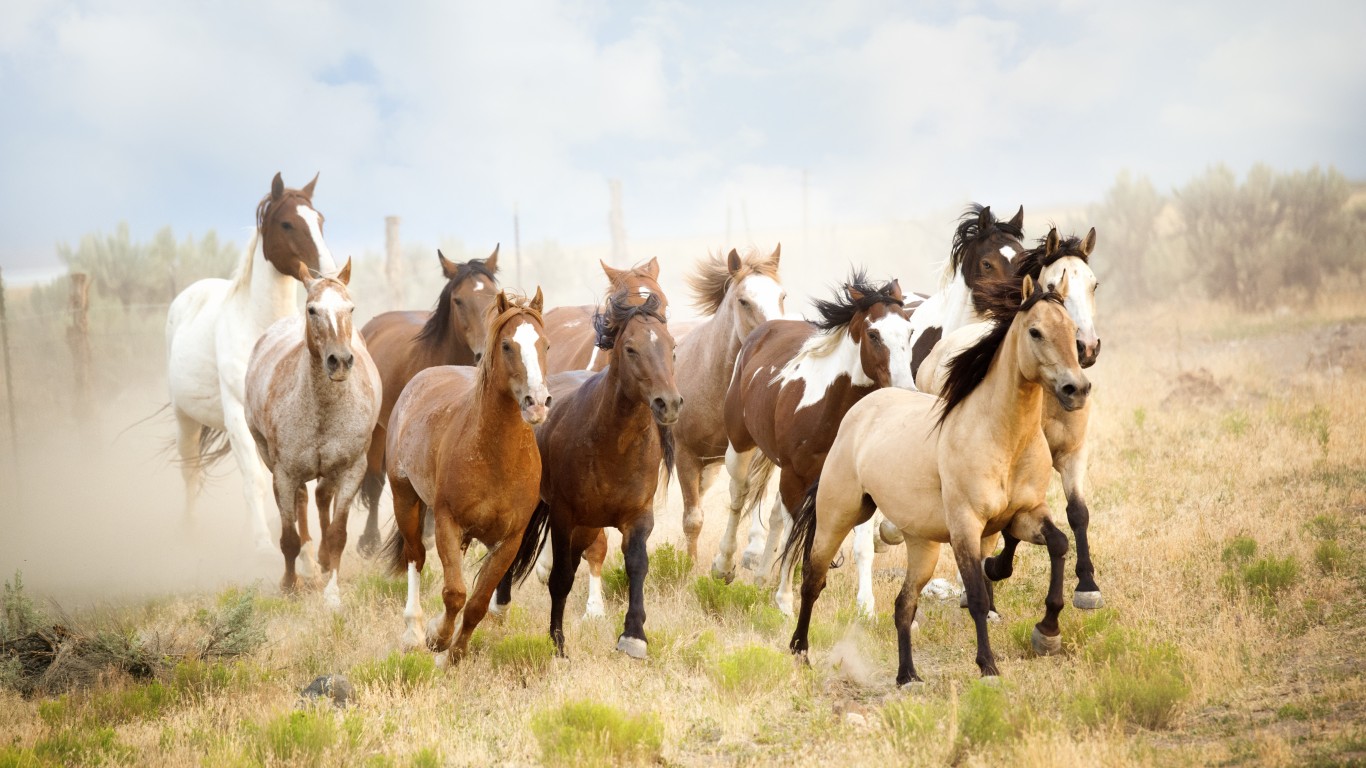
38. Utah
> Fatal attacks (2000-2022): 22
> Population (2020): 3,363,182
> Odds of being killed by an animal: 1 in 152,872
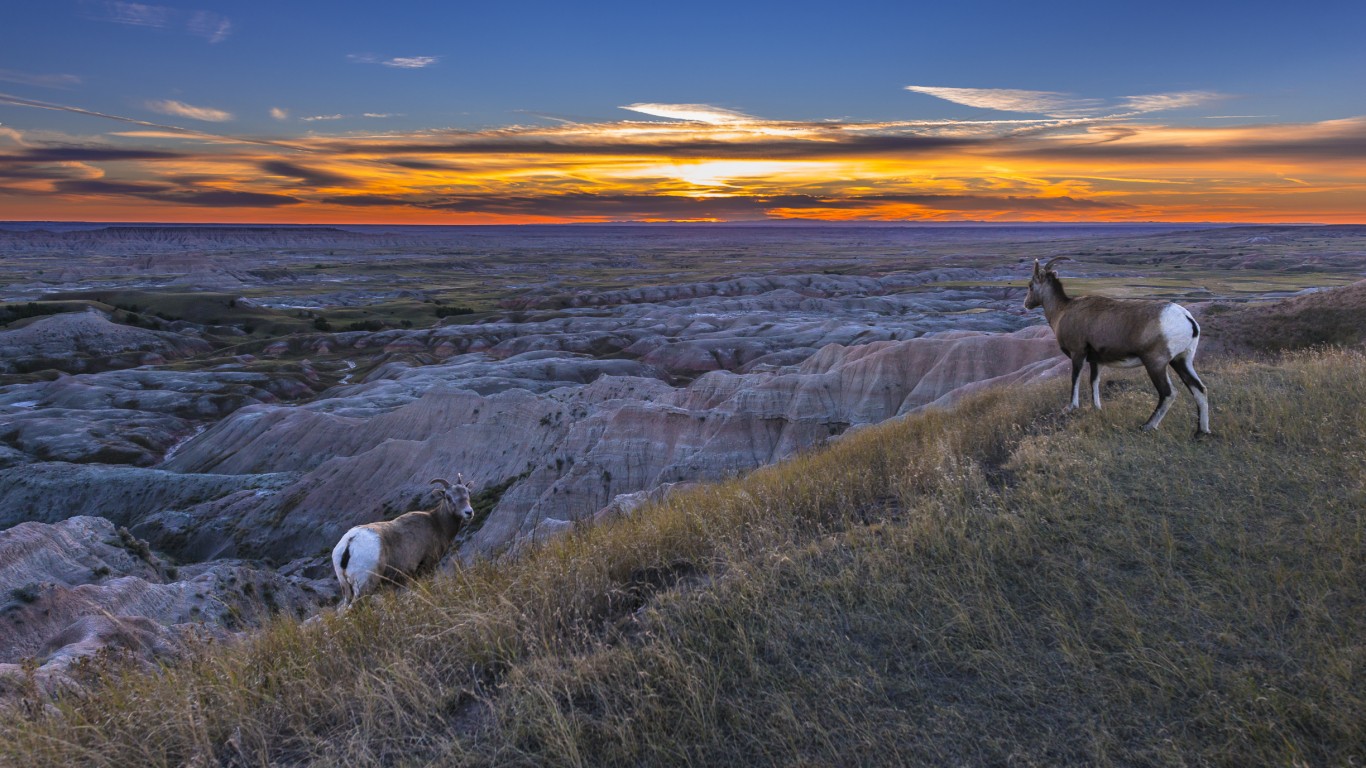
37. South Dakota
> Fatal attacks (2000-2022): 22
> Population (2020): 902,542
> Odds of being killed by an animal: 1 in 41,025
[in-text-ad-2]

36. Massachusetts
> Fatal attacks (2000-2022): 23
> Population (2020): 6,922,107
> Odds of being killed by an animal: 1 in 300,961
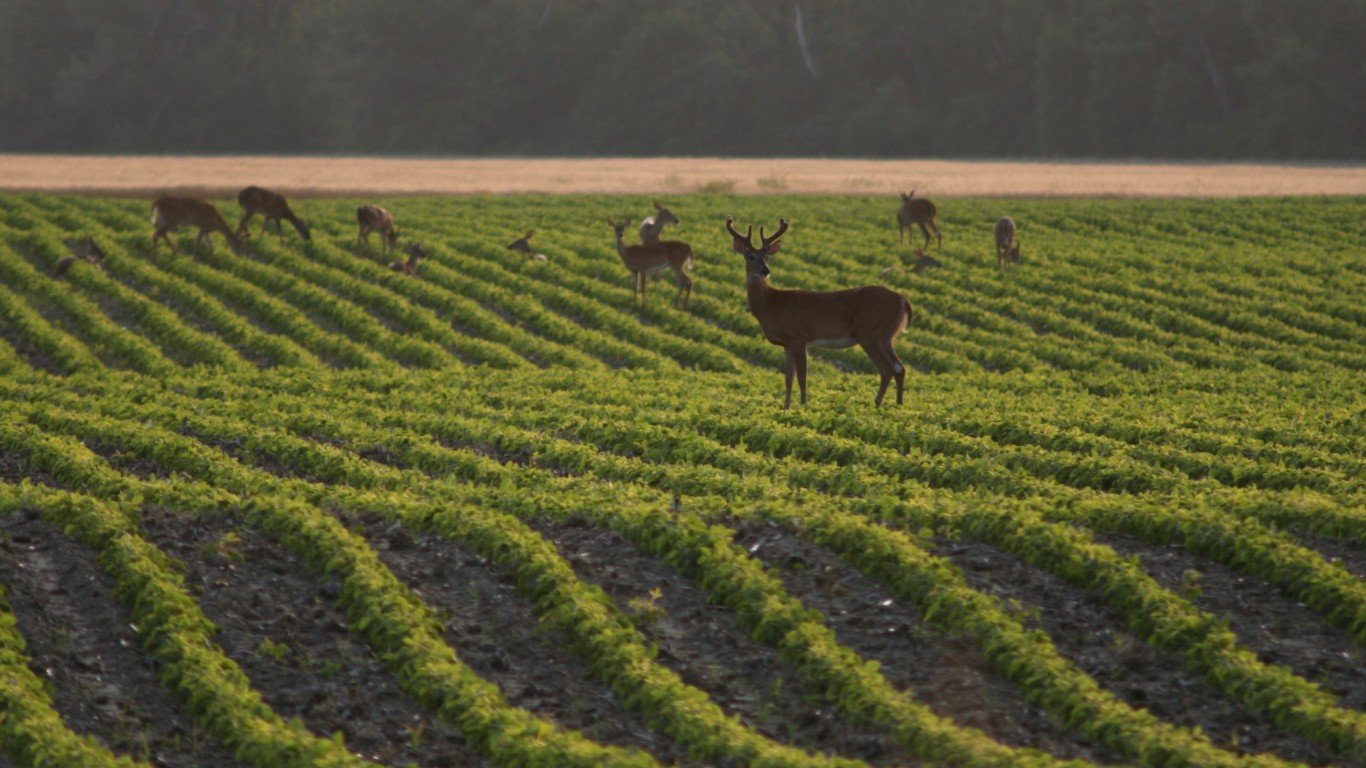
35. Nebraska
> Fatal attacks (2000-2022): 23
> Population (2020): 1,960,790
> Odds of being killed by an animal: 1 in 85,252
[in-text-ad]
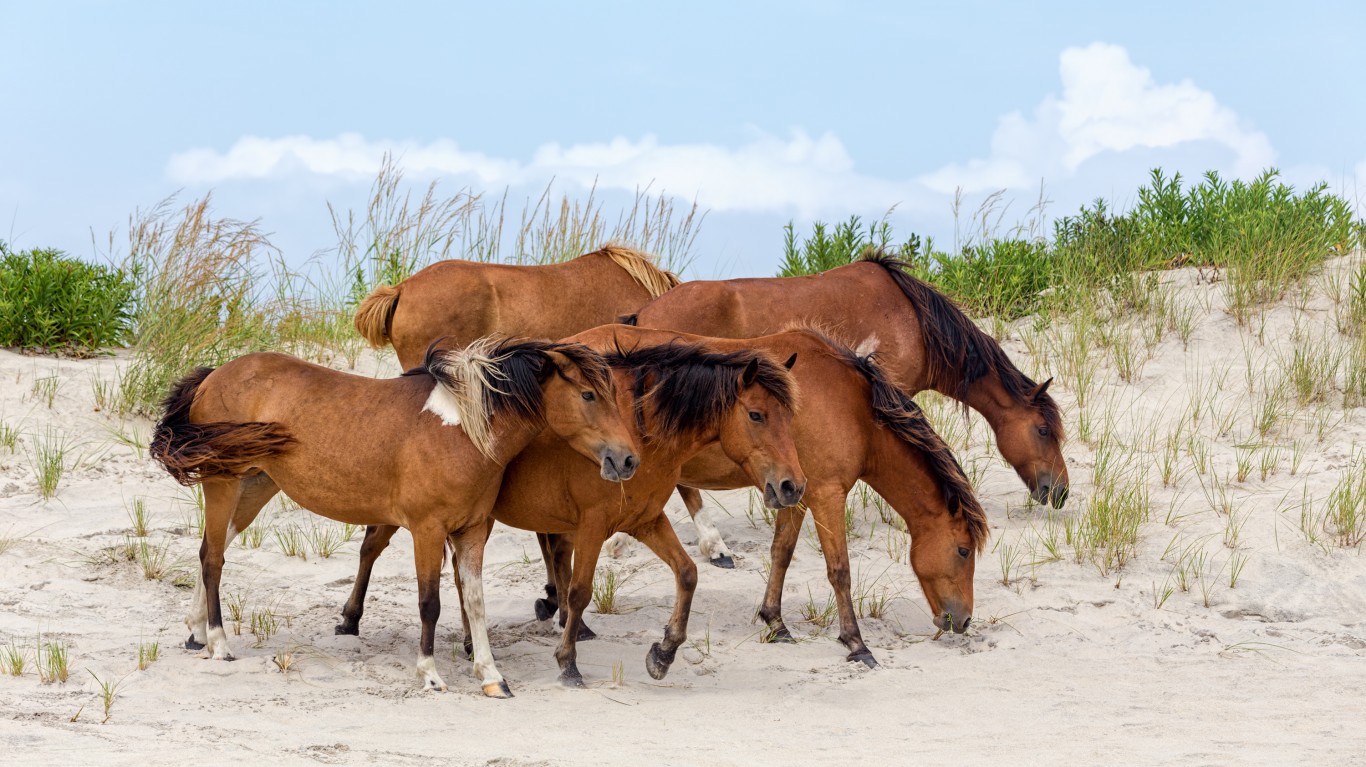
34. Maryland
> Fatal attacks (2000-2022): 32
> Population (2020): 6,075,314
> Odds of being killed by an animal: 1 in 189,854

33. Colorado
> Fatal attacks (2000-2022): 33
> Population (2020): 5,961,083
> Odds of being killed by an animal: 1 in 180,639
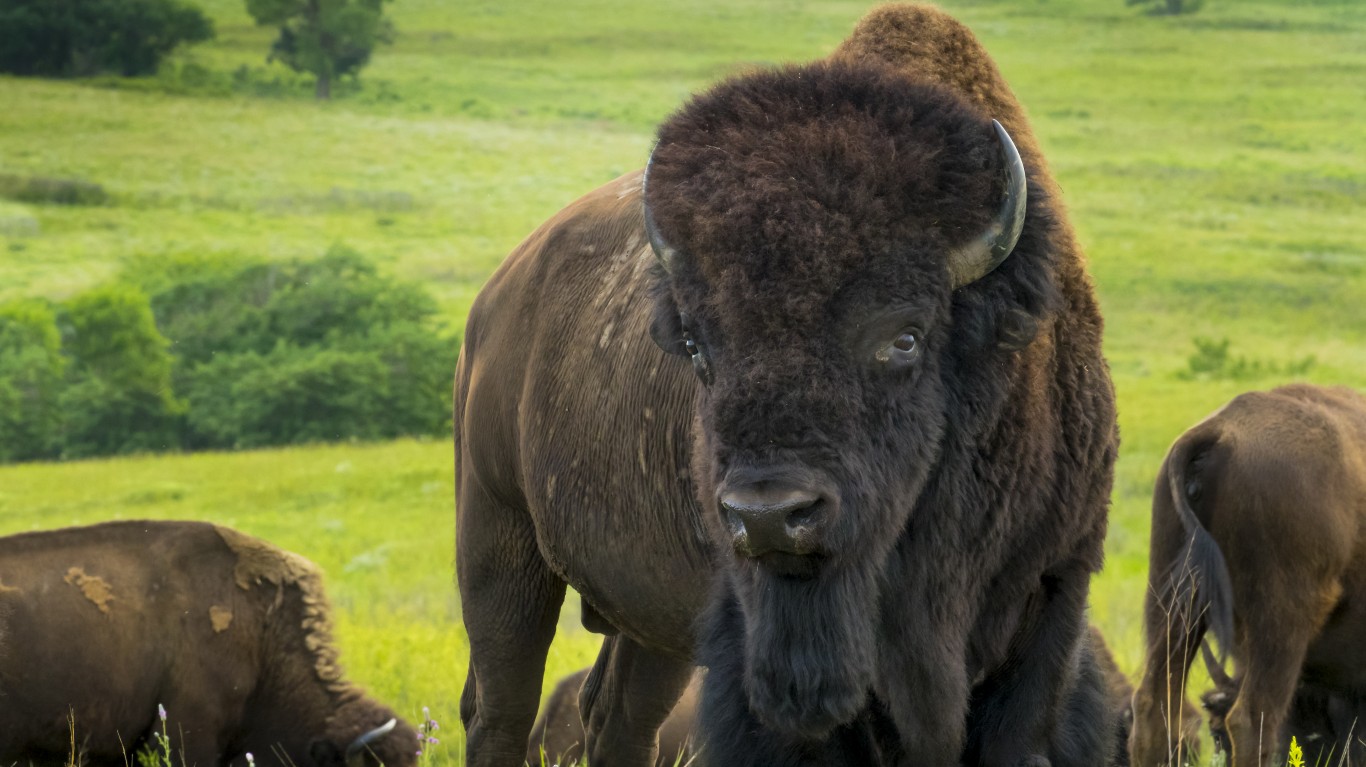
32. Kansas
> Fatal attacks (2000-2022): 35
> Population (2020): 2,919,179
> Odds of being killed by an animal: 1 in 83,405
[in-text-ad-2]
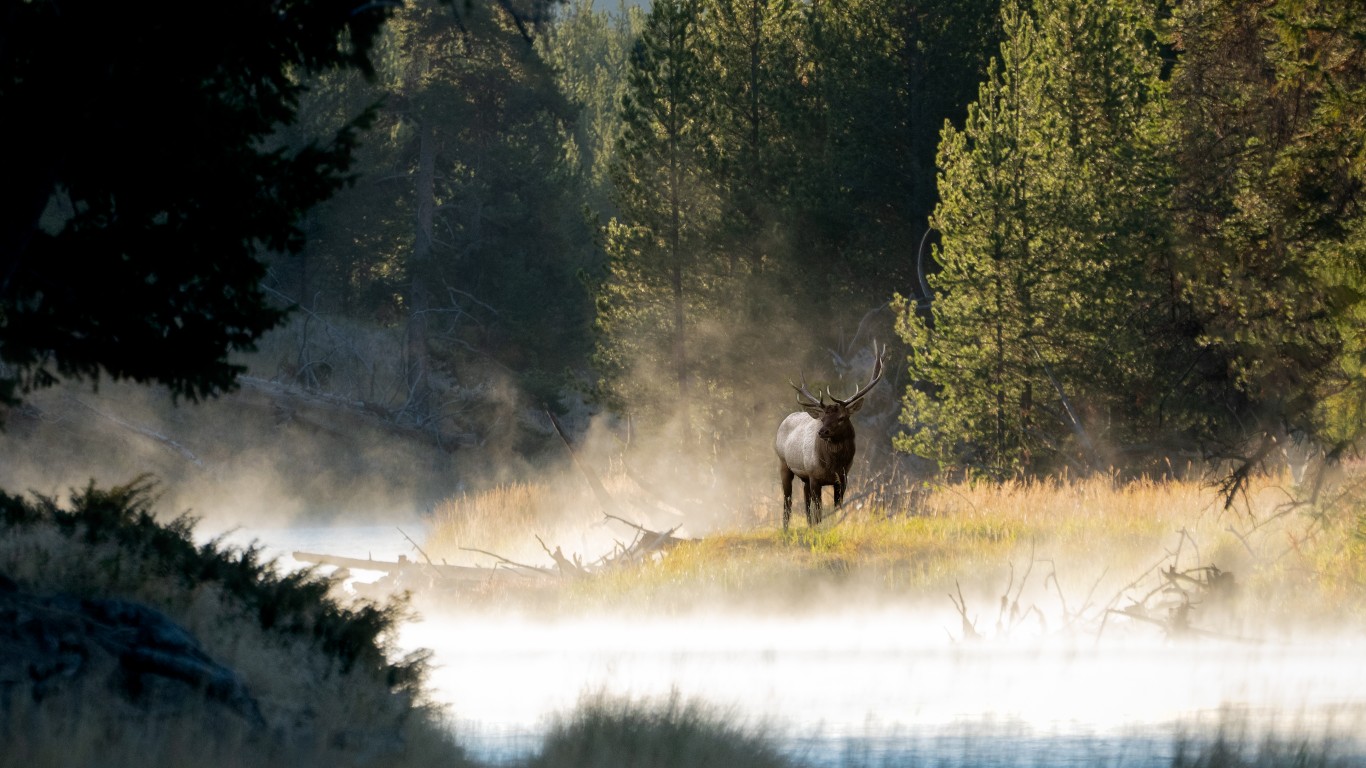
31. Montana
> Fatal attacks (2000-2022): 35
> Population (2020): 1,093,117
> Odds of being killed by an animal: 1 in 31,232

30. Iowa
> Fatal attacks (2000-2022): 42
> Population (2020): 3,174,426
> Odds of being killed by an animal: 1 in 75,582
[in-text-ad]
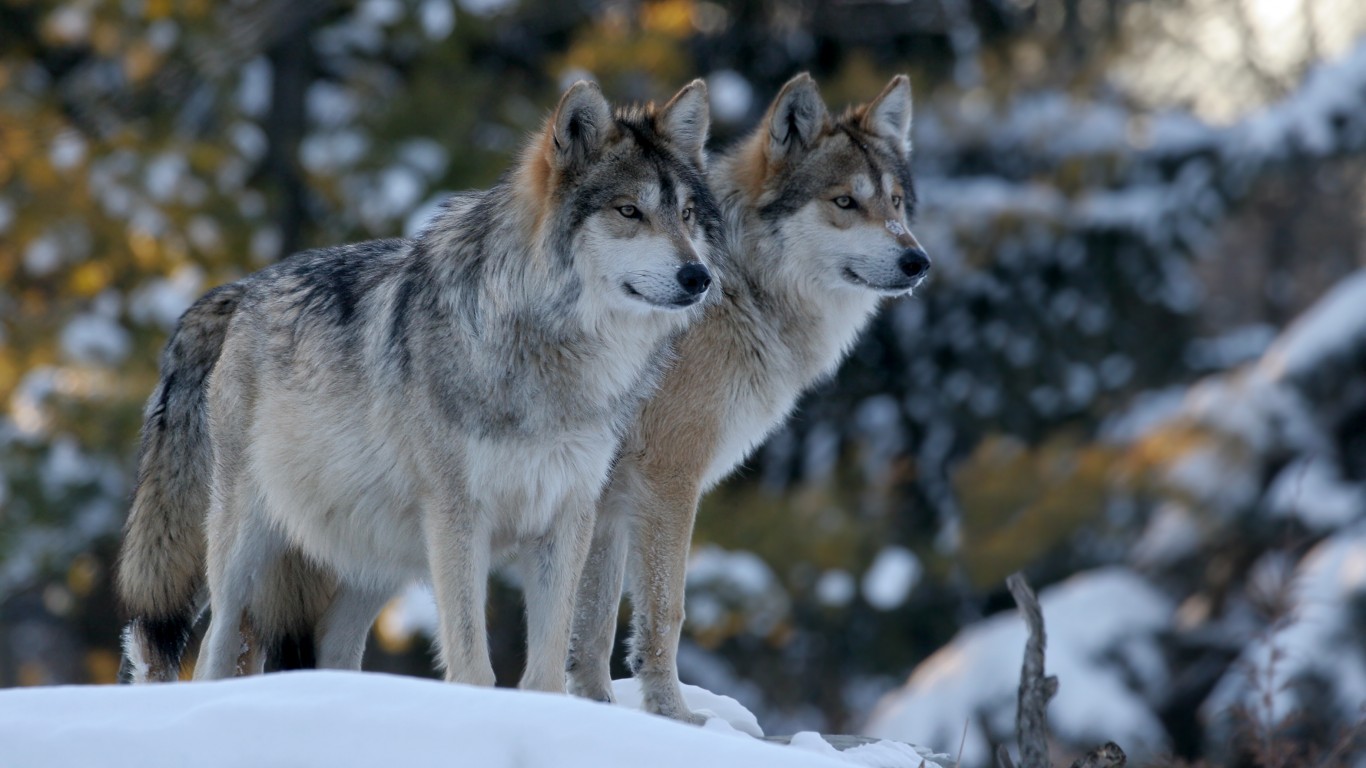
29. New Mexico
> Fatal attacks (2000-2022): 44
> Population (2020): 2,109,093
> Odds of being killed by an animal: 1 in 47,934

28. Idaho
> Fatal attacks (2000-2022): 45
> Population (2020): 1,896,652
> Odds of being killed by an animal: 1 in 42,148

27. Oregon
> Fatal attacks (2000-2022): 47
> Population (2020): 4,325,290
> Odds of being killed by an animal: 1 in 92,027
[in-text-ad-2]

26. West Virginia
> Fatal attacks (2000-2022): 58
> Population (2020): 1,755,715
> Odds of being killed by an animal: 1 in 30,271

25. Minnesota
> Fatal attacks (2000-2022): 60
> Population (2020): 5,739,781
> Odds of being killed by an animal: 1 in 95,663
[in-text-ad]
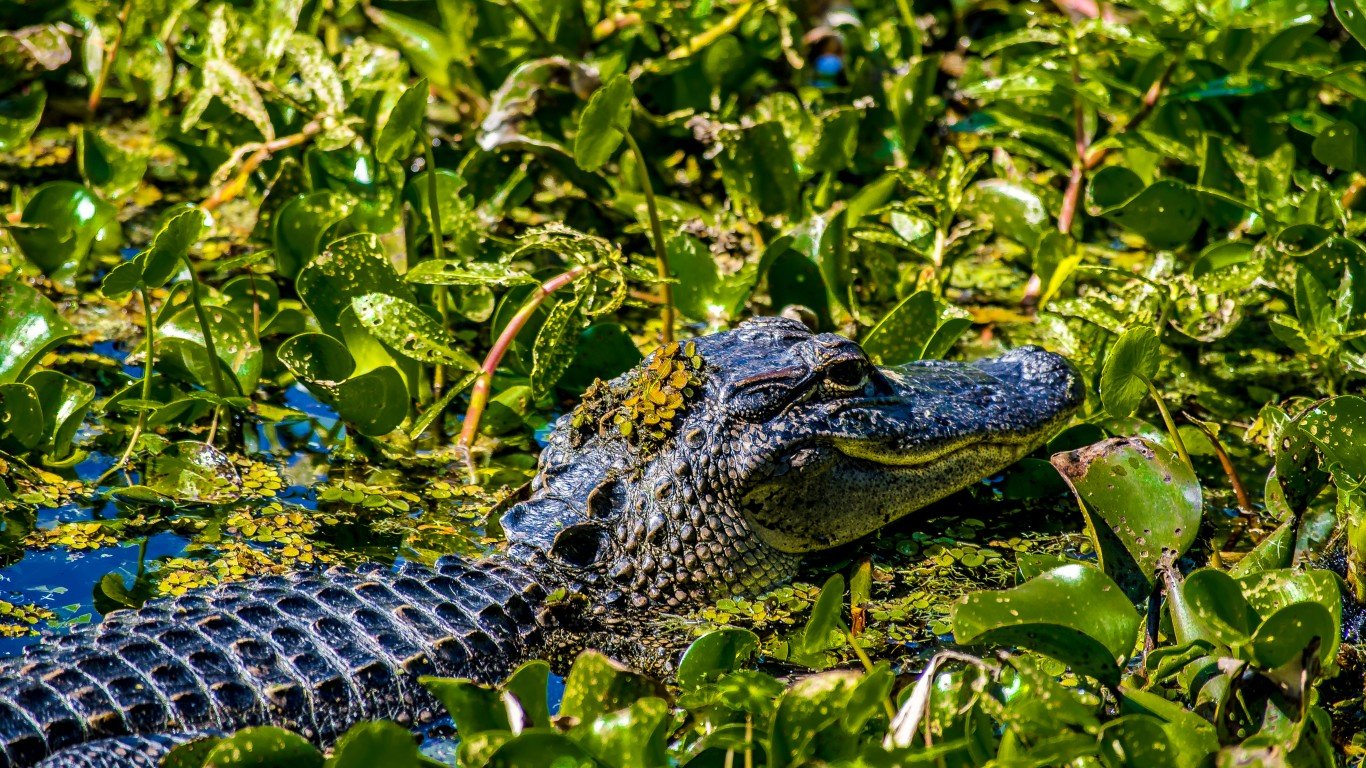
24. Louisiana
> Fatal attacks (2000-2022): 64
> Population (2020): 4,616,106
> Odds of being killed by an animal: 1 in 72,127

23. Indiana
> Fatal attacks (2000-2022): 70
> Population (2020): 6,842,385
> Odds of being killed by an animal: 1 in 97,748
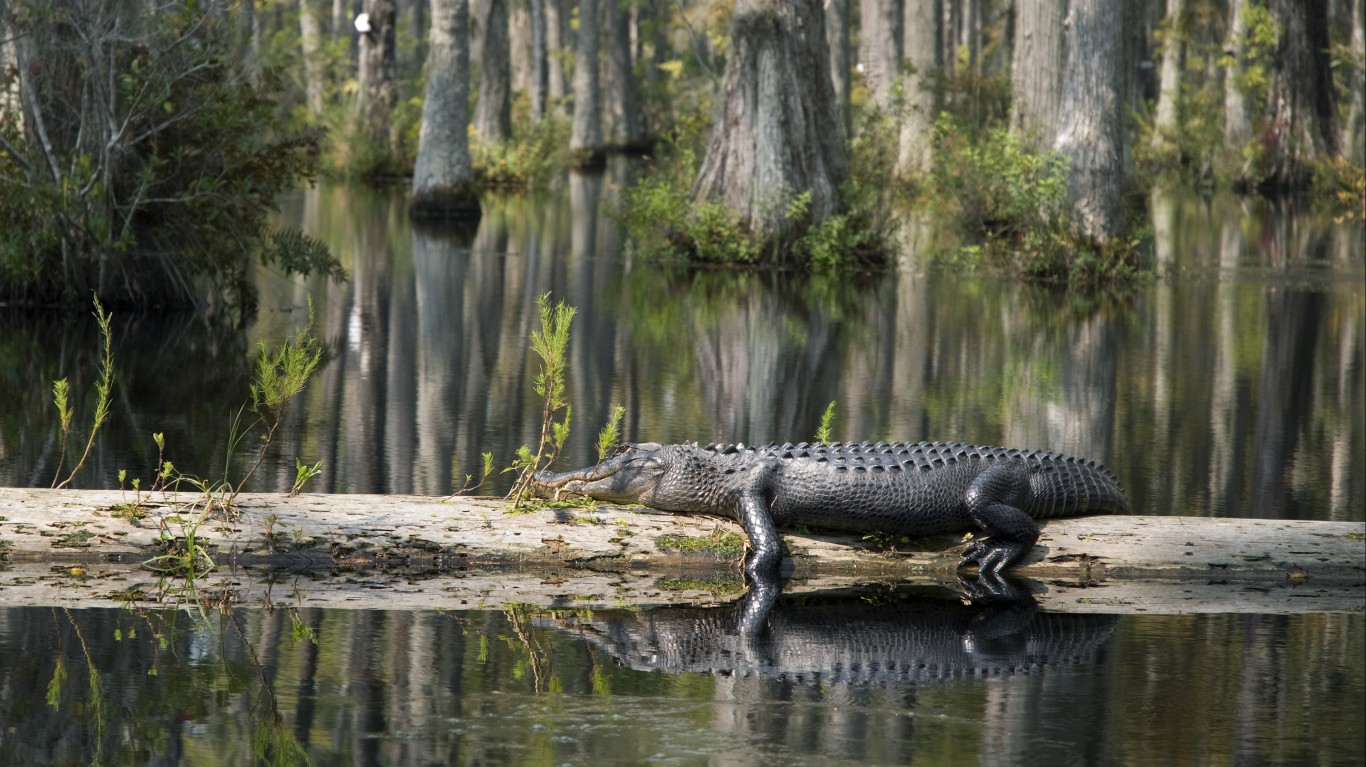
22. South Carolina
> Fatal attacks (2000-2022): 71
> Population (2020): 5,342,388
> Odds of being killed by an animal: 1 in 75,245
[in-text-ad-2]

21. Arkansas
> Fatal attacks (2000-2022): 73
> Population (2020): 3,042,017
> Odds of being killed by an animal: 1 in 41,671

20. Mississippi
> Fatal attacks (2000-2022): 73
> Population (2020): 2,961,536
> Odds of being killed by an animal: 1 in 40,569
[in-text-ad]

19. Alabama
> Fatal attacks (2000-2022): 75
> Population (2020): 4,949,697
> Odds of being killed by an animal: 1 in 65,996

18. Washington
> Fatal attacks (2000-2022): 81
> Population (2020): 7,887,965
> Odds of being killed by an animal: 1 in 97,382

17. Kentucky
> Fatal attacks (2000-2022): 81
> Population (2020): 4,487,233
> Odds of being killed by an animal: 1 in 55,398
[in-text-ad-2]
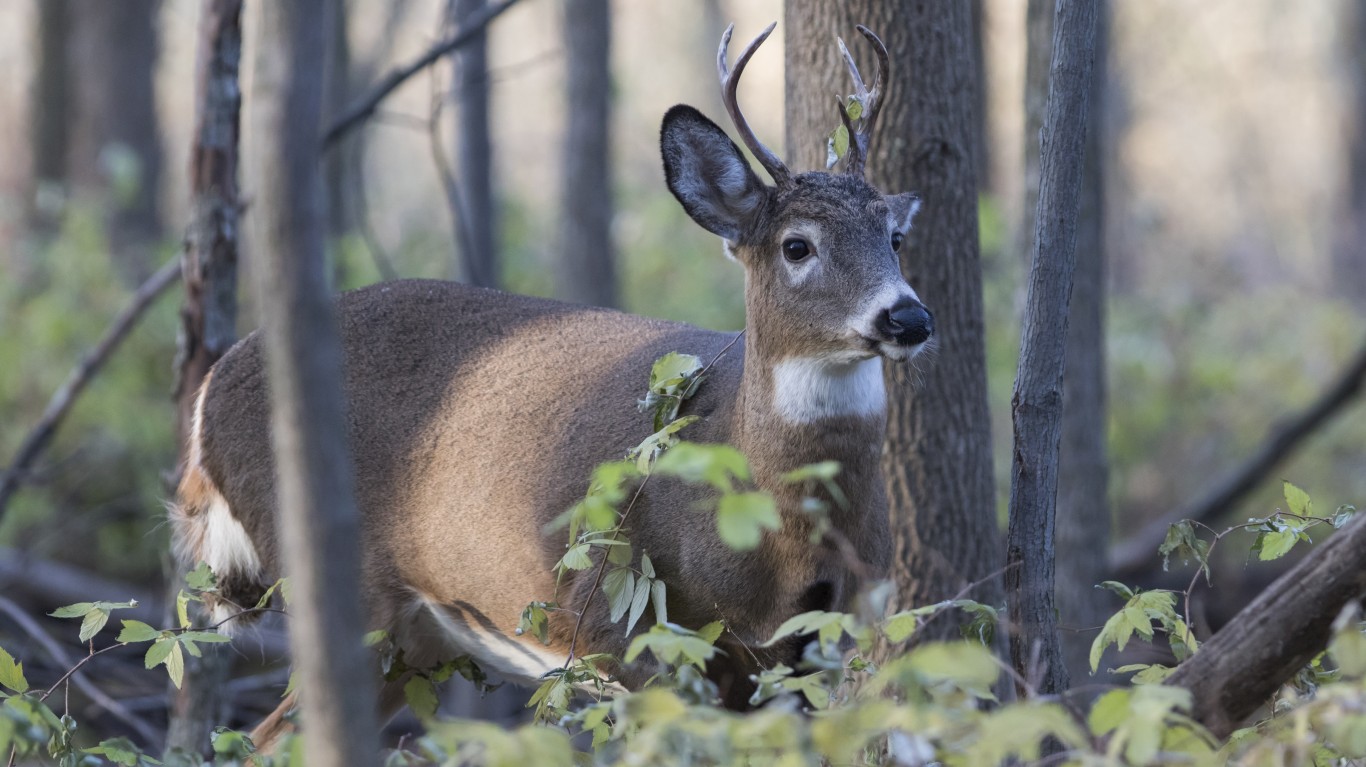
16. Virginia
> Fatal attacks (2000-2022): 91
> Population (2020): 8,638,218
> Odds of being killed by an animal: 1 in 94,925
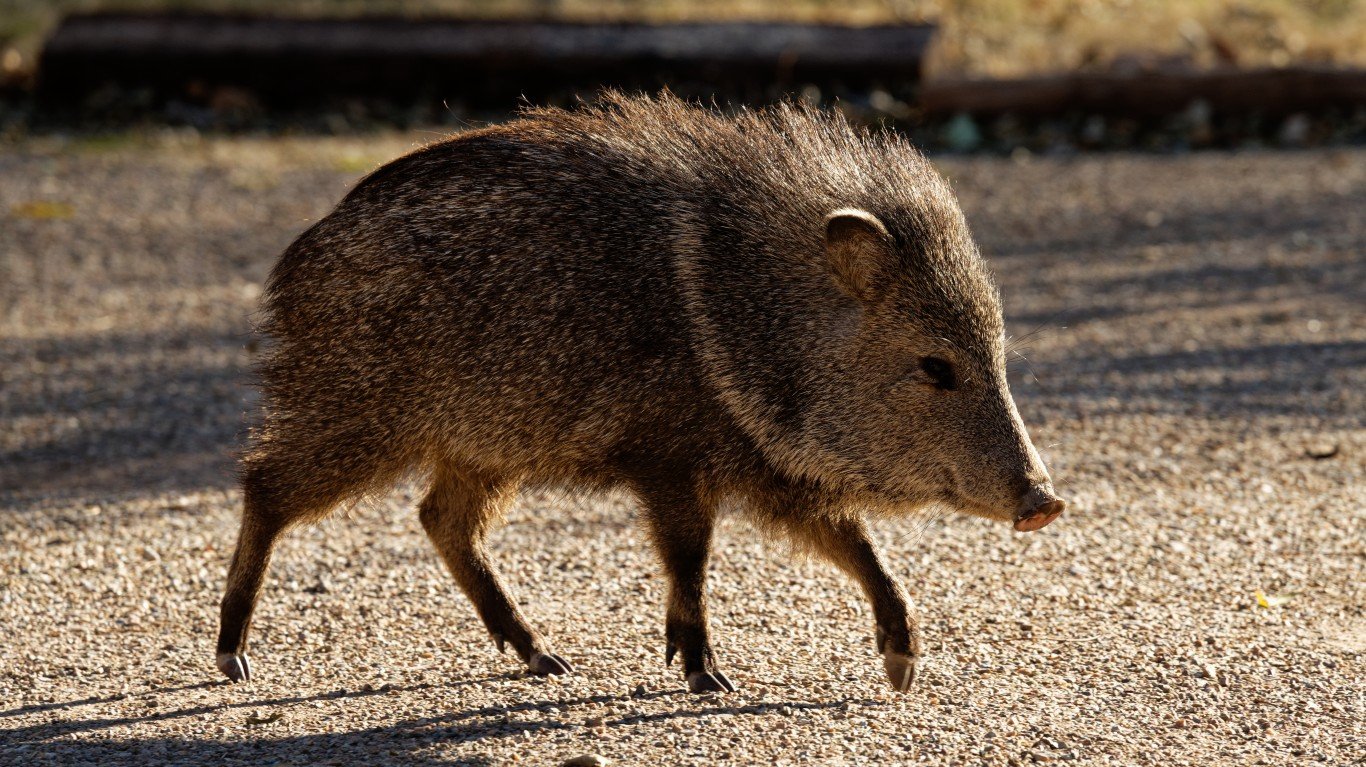
15. Arizona
> Fatal attacks (2000-2022): 95
> Population (2020): 7,640,796
> Odds of being killed by an animal: 1 in 80,429
[in-text-ad]
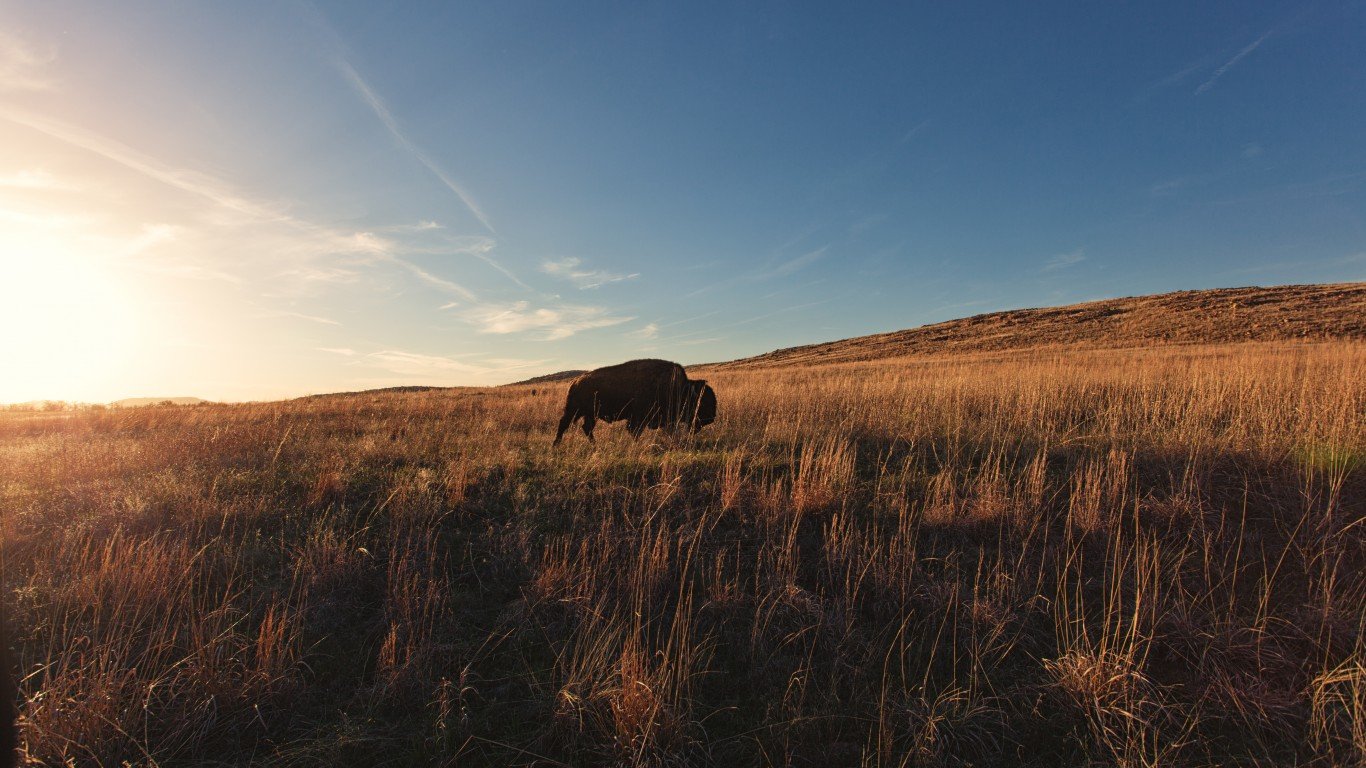
14. Oklahoma
> Fatal attacks (2000-2022): 96
> Population (2020): 4,007,179
> Odds of being killed by an animal: 1 in 41,741
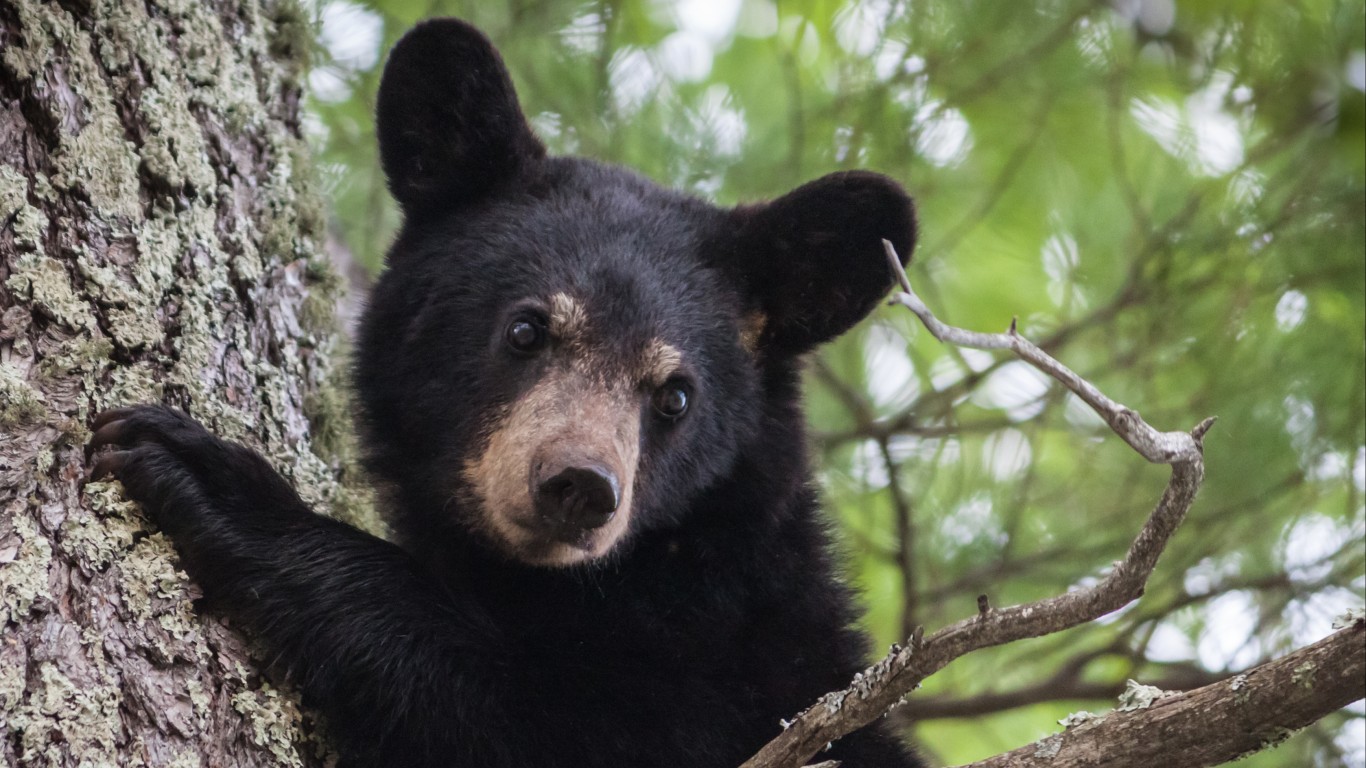
13. Wisconsin
> Fatal attacks (2000-2022): 107
> Population (2020): 5,867,518
> Odds of being killed by an animal: 1 in 54,837

12. Missouri
> Fatal attacks (2000-2022): 109
> Population (2020): 6,184,843
> Odds of being killed by an animal: 1 in 56,742
[in-text-ad-2]

11. New York
> Fatal attacks (2000-2022): 113
> Population (2020): 19,223,191
> Odds of being killed by an animal: 1 in 170,117

10. Illinois
> Fatal attacks (2000-2022): 116
> Population (2020): 12,518,071
> Odds of being killed by an animal: 1 in 107,914
[in-text-ad]

9. Michigan
> Fatal attacks (2000-2022): 130
> Population (2020): 9,995,212
> Odds of being killed by an animal: 1 in 76,886

8. Pennsylvania
> Fatal attacks (2000-2022): 137
> Population (2020): 12,805,190
> Odds of being killed by an animal: 1 in 93,469

7. Ohio
> Fatal attacks (2000-2022): 152
> Population (2020): 11,727,377
> Odds of being killed by an animal: 1 in 77,154
[in-text-ad-2]

6. Georgia
> Fatal attacks (2000-2022): 156
> Population (2020): 10,936,299
> Odds of being killed by an animal: 1 in 70,104
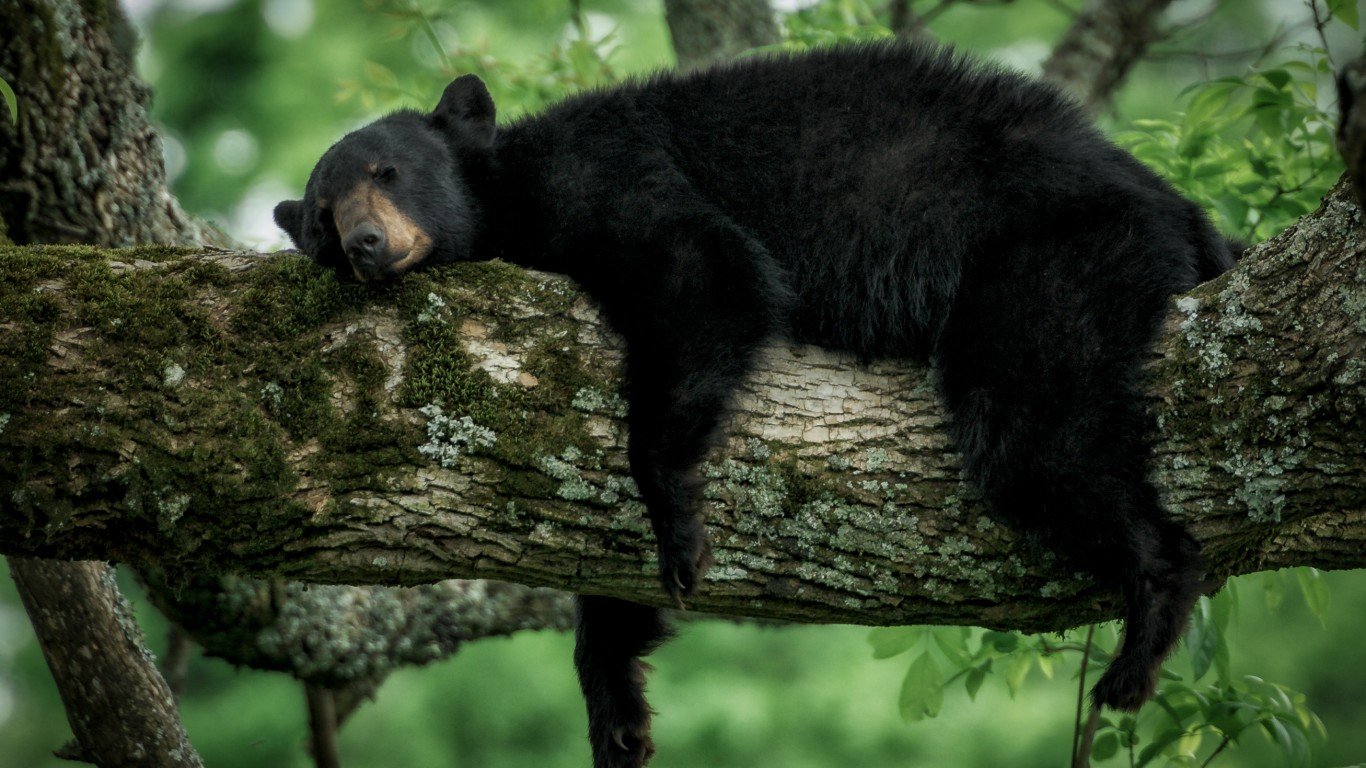
5. Tennessee
> Fatal attacks (2000-2022): 165
> Population (2020): 7,001,803
> Odds of being killed by an animal: 1 in 42,435
[in-text-ad]

4. North Carolina
> Fatal attacks (2000-2022): 180
> Population (2020): 10,807,491
> Odds of being killed by an animal: 1 in 60,042
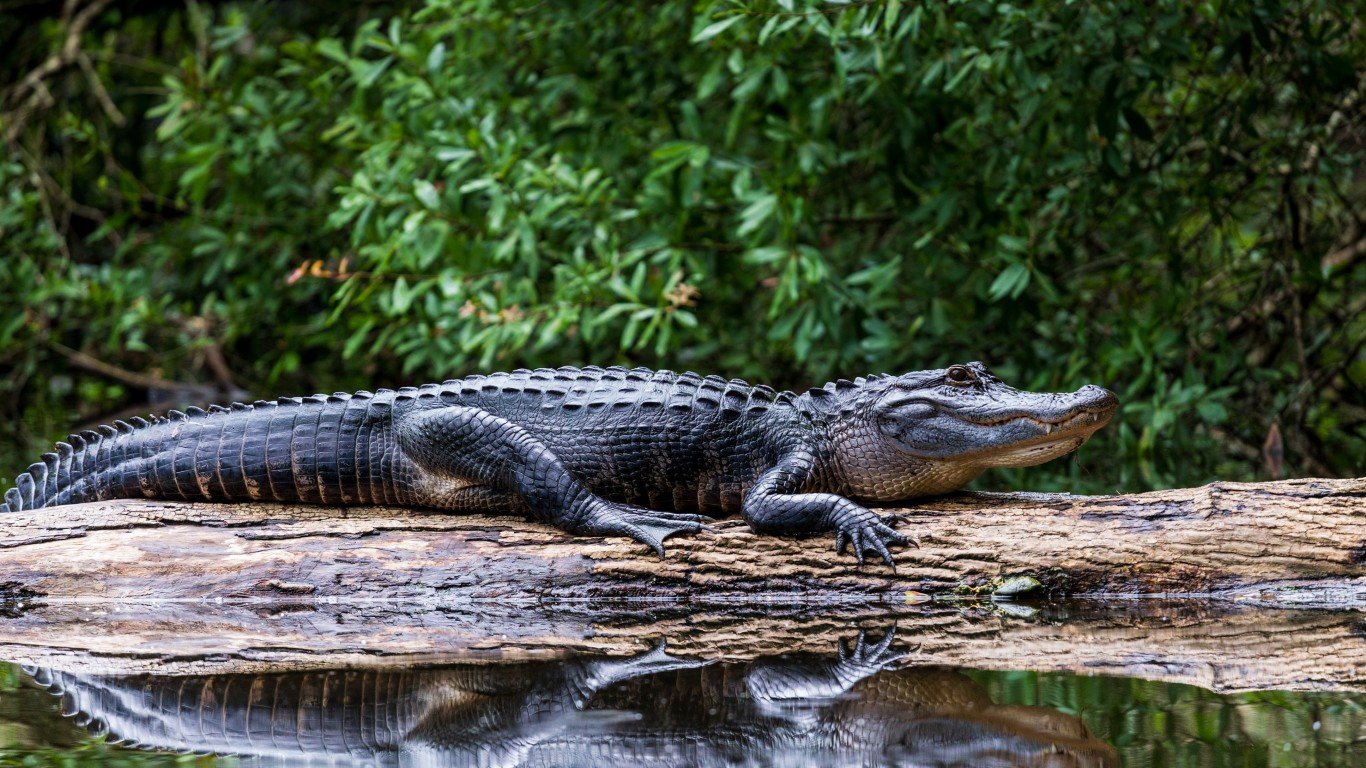
3. Florida
> Fatal attacks (2000-2022): 257
> Population (2020): 22,177,997
> Odds of being killed by an animal: 1 in 86,296

2. California
> Fatal attacks (2000-2022): 312
> Population (2020): 39,664,128
> Odds of being killed by an animal: 1 in 127,129
[in-text-ad-2]

1. Texas
> Fatal attacks (2000-2022): 559
> Population (2020): 30,097,526
> Odds of being killed by an animal: 1 in 53,842
Sponsored: Attention Savvy Investors: Speak to 3 Financial Experts – FREE
Ever wanted an extra set of eyes on an investment you’re considering? Now you can speak with up to 3 financial experts in your area for FREE. By simply
clicking here you can begin to match with financial professionals who can help guide you through the financial decisions you’re making. And the best part? The first conversation with them is free.
Click here to match with up to 3 financial pros who would be excited to help you make financial decisions.
Thank you for reading! Have some feedback for us?
Contact the 24/7 Wall St. editorial team.
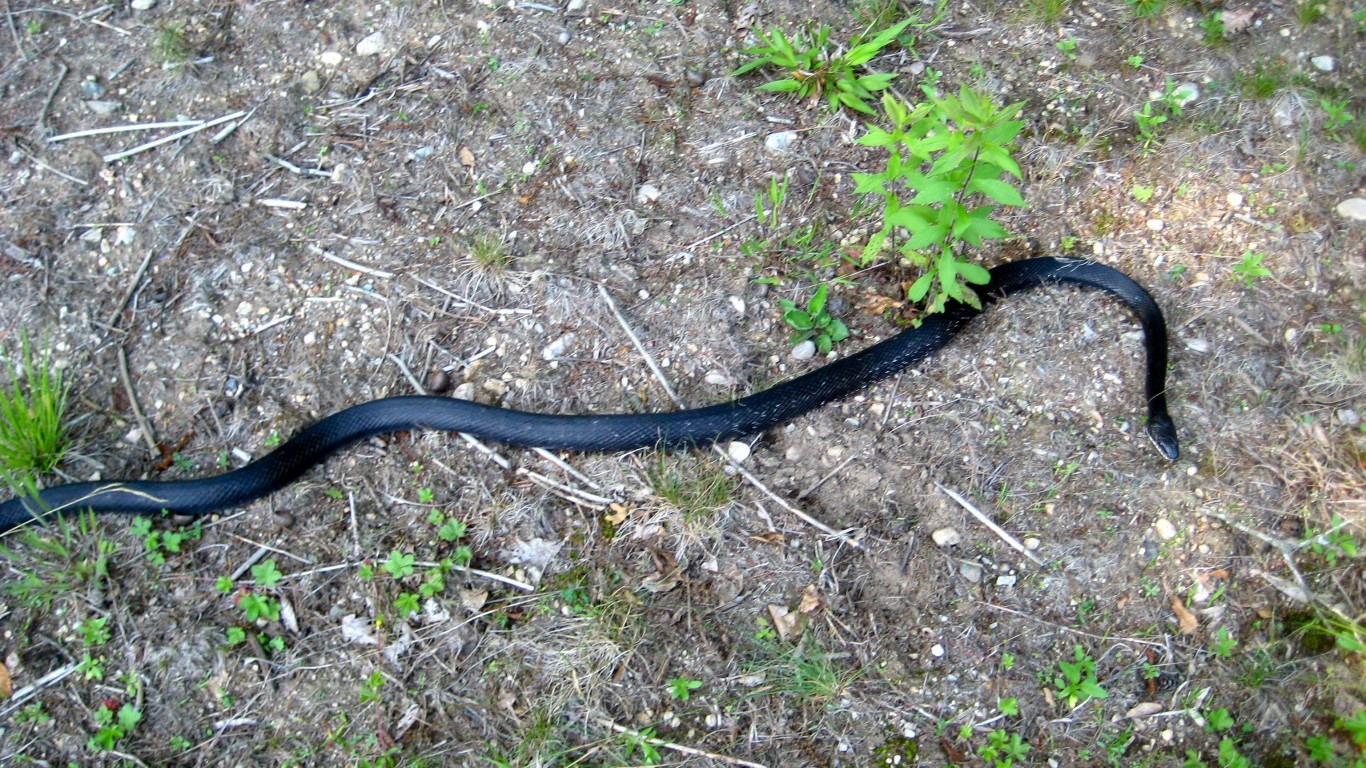
 24/7 Wall St.
24/7 Wall St.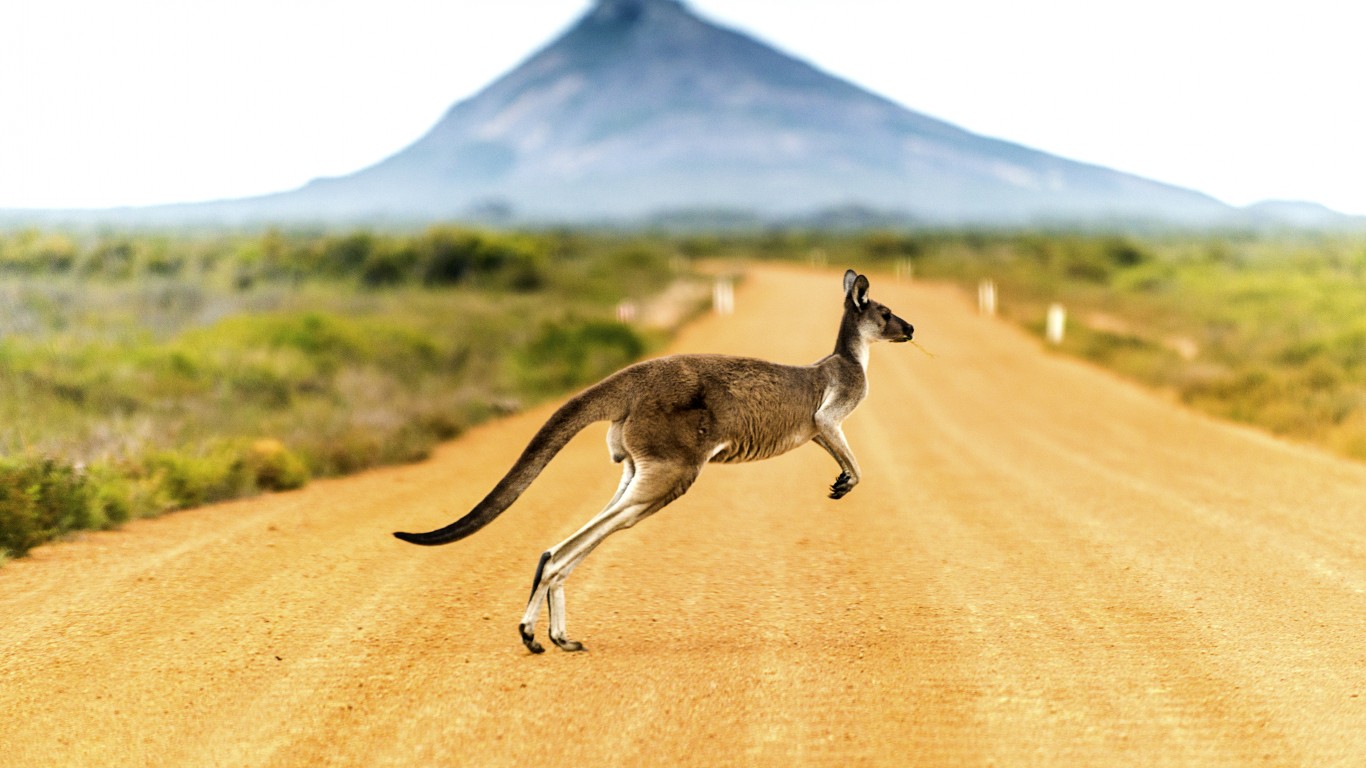 24/7 Wall St.
24/7 Wall St.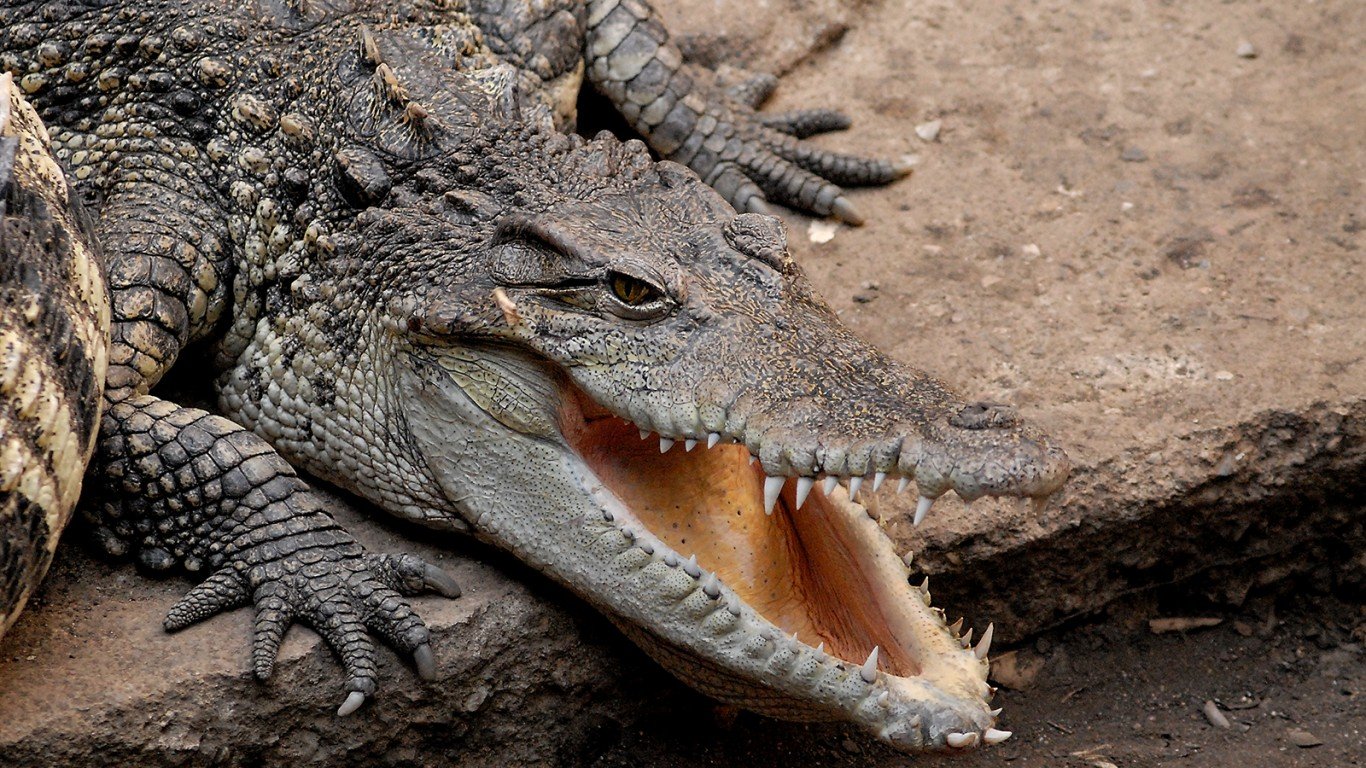 24/7 Wall St.
24/7 Wall St.

